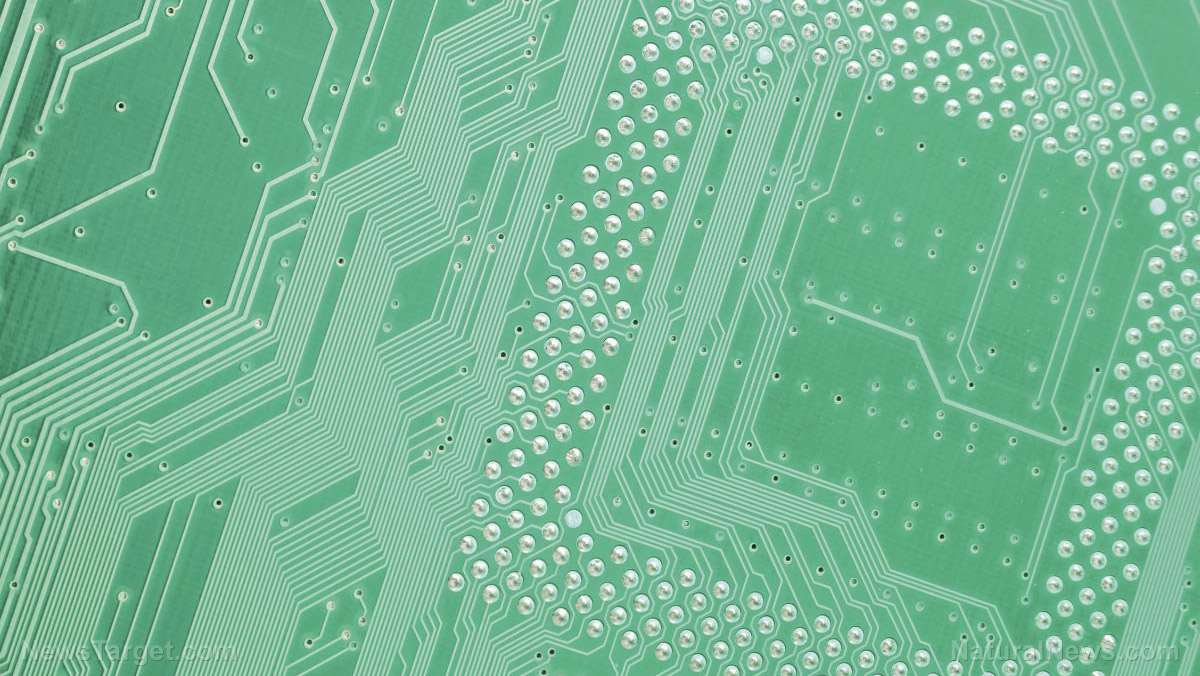Google: Quantum computer might be tapping into parallel universes
12/22/2024 / By Kevin Hughes

- Google unveiled quantum chip Willow, which performed in under five minutes a task that would take current supercomputers 10 septillion years to complete.
- Google suggests the quantum computer leverages parallel universes, supporting David Deutsch’s theory. However, this interpretation is controversial and disputed by critics like physicist Ethan Siegel.
- Willow has 105 qubits, a significant upgrade from the 53-qubit Sycamore, with enhanced error correction capabilities as it scales up.
- Google envisions transformative uses in medicine, clean energy and battery design, but critics argue that the tested task lacks immediate practical value and was designed to showcase quantum speed.
- Google’s announcement solidifies its lead in quantum computing, but the field remains competitive with efforts from other tech giants like IBM, Amazon and Microsoft, all aiming for practical, scalable quantum applications.
In a groundbreaking announcement, Google has revealed its latest quantum computing achievement: the quantum chip Willow, which is said to have performed in under five minutes a computational task that would take today’s fastest supercomputers an estimated 10 septillion years to complete.
While the results have been met with excitement and skepticism, the company’s claim that its quantum computer might be tapping into parallel universes has sparked intense debate in the scientific community.
According to Google Quantum AI founder Hartmut Neven, Willow’s exceptional speed has lent support to the concept that quantum computation operates in a multiverse. This notion, first proposed by physicist David Deutsch, suggests that quantum computers could leverage parallel universes to achieve their rapid results. However, this interpretation is highly controversial.
Critics, including renowned physicist Ethan Siegel, argue that the multiverse theory is not necessarily supported by the success of quantum computing. He pointed out that quantum mechanics can function effectively without invoking the existence of parallel universes.
“You can have quantum mechanics work just fine, both physically and mathematically, without introducing even one parallel universe,” Siegel said.
Quantum technology pushes boundaries of what is possible in computational science
Google’s claims, while ambitious, are rooted in a significant technological leap. The Willow chip operates with 105 qubits, up from the 53 qubits of its predecessor, the Sycamore chip. This increase not only enhances the computational power of the machine but also addresses a key challenge in quantum computing: error correction. With its advanced design, Willow is capable of reducing errors as it scales up, marking a significant step toward practical quantum computing. (Related: Google’s quantum leap: Willow chip pushes boundaries of computing power.)
The potential applications of quantum computing are vast and transformative. Google envisions a future where quantum computers could help discover new medicines, design more efficient batteries for electric cars and accelerate progress in clean energy alternatives. Quantum technology’s ability to process vast amounts of data simultaneously makes it an invaluable tool for solving some of the world’s most complex problems.
Critics, however, highlight the narrow scope of the computational task performed by Willow. While the chip’s performance is impressive, the task itself is not a practical application but rather a benchmark designed specifically to showcase quantum speed. German physicist Sabine Hossenfelder suggested that this particular task, which involves generating a random distribution, has no immediate practical value.
The debate surrounding Google’s claims highlights the ongoing struggle in the field of quantum computing to achieve practical and scalable applications. Despite skepticism, the developments in quantum technology continue to push the boundaries of what is possible in computational science.
As the race for quantum supremacy continues, Google’s announcement has solidified its position as a frontrunner in this emerging field. Other tech giants, including IBM, Amazon and Microsoft, are also racing to develop quantum computers capable of solving real-world problems. The ultimate goal is not just to build faster computers, but to unlock new possibilities in fields ranging from medicine to energy production.
In the end, while the concept of parallel universes remains speculative, Google’s breakthrough in quantum computing represents a significant milestone in advancing the technology.
As scientists and engineers continue to push the boundaries of quantum mechanics, the potential applications of this rapidly evolving field continue to expand, shaping the future of technology and scientific discovery.
Follow Computing.news for more stories like this.
Watch the video below that talks about quantum computing and artificial intelligence.
This video is from the Grand Solar Minimum Solutions channel on Brighteon.com.
More related stories:
Apple to compete with NVIDIA, develop AI server chip named “Baltra.”
Google backs construction of first small nuclear reactors to power AI data centers.
China may be winning the quantum computing race with a record-shattering processor.
Sources include:
Submit a correction >>
Tagged Under:
Big Tech, computing, Glitch, Google, information technology, multiverse, parallel universes, quantum computing, quantum mechanics, quantum technology, qubits, search engine, Sycamore chip, tech giants, Willow chip
This article may contain statements that reflect the opinion of the author
RECENT NEWS & ARTICLES
COPYRIGHT © 2017 SEARCH ENGINE NEWS




















